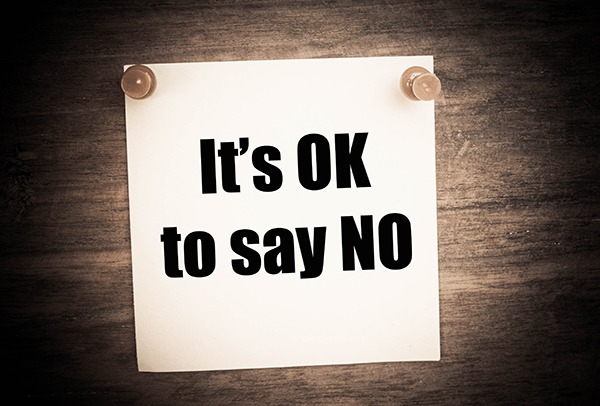
By Anthony Kaylin, courtesy of SBAM Approved Partner ASE
One of the hardest things for HR to do is to say “no.” Fires and more fires have to be attended to, even if it isn’t in the HR bailiwick. Not everything is important, yet we tend to treat it all at the same level. So how does HR say no when that word isn’t in the HR customer service lingo?
It’s important to take back control of time. Yes, things arise, but not everything requires HR’s involvement. Take time over the past month to see how many activities you were involved with. From that list, identify how many of those you did not need to be involved with. That provides the baseline and guidelines for you to spend your time at work.
It’s important to carve out large blocks of uninterrupted time to work on the important stuff. Don’t multi-task. It is the boon to every HR professional. They think they can, yet both quality and performance are impacted. Focus, focus, focus.
You’re going to be asked to do a lot of things. One thing to learn is that the customer is not always right. It will be hard. Since you have guidelines and criteria for importance, the decision should be much easier. If requests don’t fall under important, say “no.” Be direct. Don’t sugarcoat it. In the beginning, you may feel awkward, but if you develop the habit of saying “no,” you’ll become much more productive.
Automate your thinking. Develop and use checklists, reminders, and other tools to make decisions and get things done without conscious effort. Learn how to create helpful habits that automate your thinking. Develop productive habits that support this thinking and actions.
For example, if you are working on a benefit question that needs full attention and a manager wants to take your time to vent, tell the manager you are busy and make an appointment. By the time the appointment comes around, the manager probably will cancel the meeting. She vented already to someone else.
One other thing. Take care of yourself. Sleep well, exercise, take care of your body. Not everything has to be done at that moment. It is OK to save work for tomorrow so you can take time for yourself at night. Healthy body, healthy mind. Getting ample sleep will improve decision making and make you a more productive and quality employee.
Overall, it may impact your social life to get this started. Talk with those friends and family and explain that you’re developing better habits for work. It may cause some short-term hardship for them, but the people who love you will forgive you, until they don’t. And if they don’t, you haven’t succeeded in learning to say “no.”
In summary, focus your time and energy. Make sure you have large blocks of undistracted time. Make lists and guidelines as to what is and what isn’t important. Learn to say “no,” even to good ideas if they don’t help achieve your most important things. Develop good habits and leverage your strength and the strengths of others. Finally, take care of yourself.
Steve Jobs believed “focusing is about saying no,” and was famously ruthless about turning down even promising projects in order to retain laser like focus on the few he was pursuing. Remember to do the same. It may feel awkward, but you will get over it.